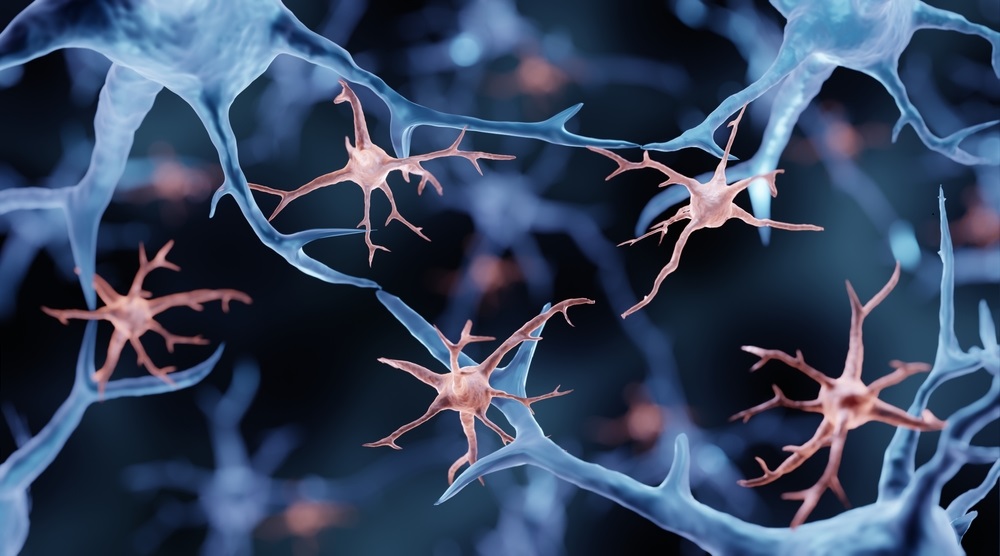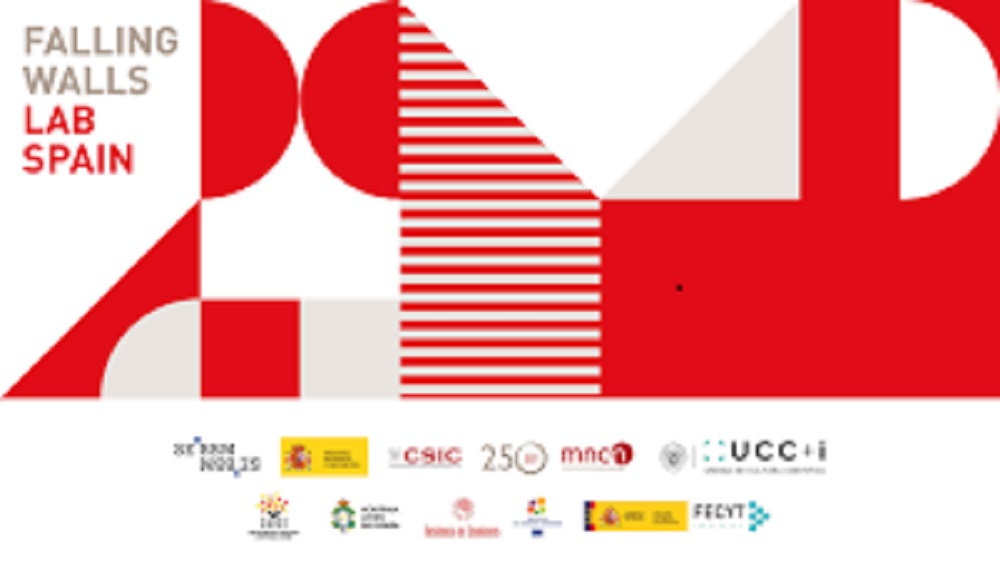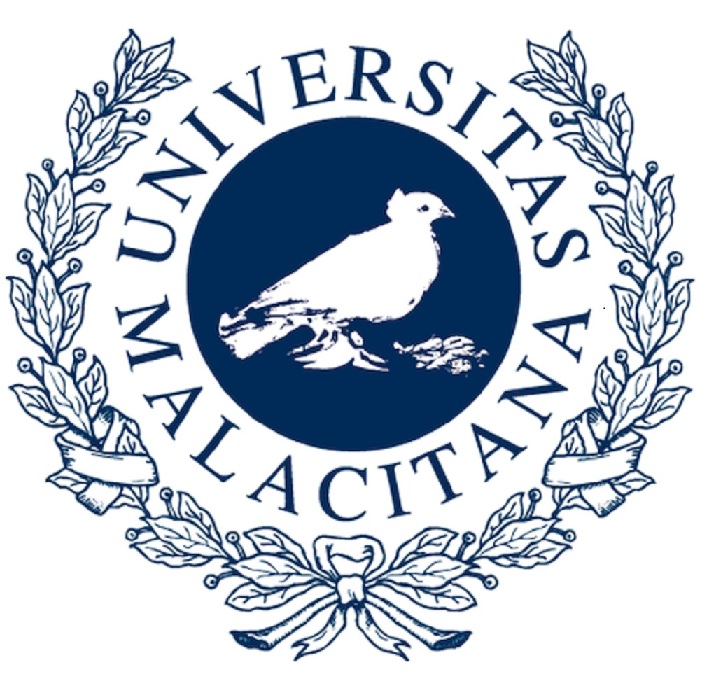The Pioneering Research at the University of Malaga
The University of Malaga (UMA), nestled in the vibrant city of Malaga, Spain, is a beacon of academic excellence and innovation. Known for its commitment to fostering groundbreaking research and promoting intellectual curiosity, UMA has made significant contributions to various fields of study. These contributions have not only elevated the university’s status on a national level but have also garnered recognition from the global scientific community.
One such innovative study that has captured the attention of scientists worldwide is spearheaded by Ana León, a dedicated and passionate biologist at UMA. Ana’s research is centered around the development of a novel vaccine aimed at regulating the functions of microglia cells, a critical component of the central nervous system.
Microglia cells, often metaphorically referred to as the “police of the brain,” play a crucial role in maintaining the health and functionality of the brain. They serve as the first line of defense against potential threats, constantly monitoring the brain’s environment and responding to changes that could potentially harm the nervous system.


Ana León’s research project is a testament to the innovative spirit that permeates UMA. Her work, which combines intricate biological understanding with cutting-edge biotechnological techniques, could potentially revolutionize our approach to treating a range of neurological conditions. It’s this kind of pioneering research that places the University of Malaga at the forefront of scientific discovery and underscores the value of studying at such a prestigious institution.
The Role of Microglia Cells
Microglia cells, the primary immune cells of the central nervous system, play a pivotal role in maintaining the health and integrity of our brain and spinal cord. These cells are the unsung heroes of our nervous system, tirelessly working behind the scenes to ensure everything runs smoothly.
These cells function as the brain’s dedicated surveillance system, constantly monitoring the environment within the brain and spinal cord. They are on high alert for any signs of damage or potential threats, such as pathogens or inflammatory stimuli. When such threats are detected, microglia cells spring into action, swiftly responding to neutralize these threats and protect the nervous system.


Their response to inflammatory stimuli is particularly noteworthy. Inflammatory stimuli can arise from a variety of sources, including infections, injuries, or diseases, and can have a detrimental impact on the brain and spinal cord. When microglia cells detect these stimuli, they activate and mount an immune response. This involves eliminating the source of inflammation, be it pathogens or damaged cells, repairing any damage caused by the inflammation, and restoring the affected area to its normal state.
Once their job is done, microglia cells ideally should return to their initial state of rest and vigilance. This restful state is crucial as it allows these cells to effectively monitor the environment and respond to new threats. However, this isn’t always the case. Sometimes, due to severe inflammatory stimuli, microglia cells can become excessively activated and enter a ‘conditioned’ state that persists over time. This state can disrupt the normal functioning of these cells and lead to exaggerated immune responses to new inflammatory stimuli, which can be harmful to the nervous system.
Understanding the complex dynamics of microglia cells and their responses to inflammatory stimuli is a challenging task. It requires a deep understanding of cellular biology, immunology, and neurology. However, it’s a challenge that researchers like those at the University of Malaga are willing to take on, driven by the potential to unlock new treatments for a range of neurological conditions. Their work underscores the importance of these cells in our nervous system and highlights the need for further research in this area.
The Problem of Excessive Activation
However, the microglia cells, despite their crucial role in maintaining the health of the nervous system, can sometimes become a source of concern. There are instances when these cells activate excessively in response to severe inflammatory stimuli, such as those resulting from traumatic brain injuries or chronic infections. This excessive activation is not a mere overreaction but can lead to a significant shift in the cells’ state and behavior.
This shift leads the microglia cells into what is known as a ‘conditioned’ state. In this state, the cells do not return to their normal state of rest after responding to an inflammatory stimulus. Instead, they remain in a heightened state of activation that persists over time. This persistent activation is not without consequences. It results in the cells developing an exaggerated immune response to new inflammatory stimuli, even those that would typically warrant a more measured response.
This disruption in the normal functioning of the microglia cells can have serious implications for the health of the nervous system. The exaggerated immune response is not only unnecessary but can also be harmful. It can lead to neurotoxicity, where the cells meant to protect the nervous system end up causing damage to the neurons.
This neurotoxicity is believed to be a potential cause for the development of various neurological diseases. These include Alzheimer’s disease, a debilitating condition characterized by progressive memory loss and cognitive decline; schizophrenia, a mental disorder that affects a person’s ability to think, feel, and behave clearly; and bipolar disorder, a mental health condition that causes extreme mood swings that include emotional highs (mania or hypomania) and lows (depression).
The potential link between the dysregulation of microglia cells and these neurological conditions underscores the importance of understanding the behavior of these cells. It highlights the need for research aimed at finding ways to regulate the activation of microglia cells, such as the groundbreaking work being done by Ana León at the University of Malaga. Her research, which aims to develop a vaccine to regulate the cells of the microglia, could pave the way for new treatments for these neurological conditions.
The Potential Solution: An Experimental Vaccine
Ana León, with her profound understanding of biology and a passion for neuroscience, has embarked on a pioneering research project that aims to address the issue of microglia cell dysregulation. Her approach is innovative and draws upon the principles of immunology, the study of the immune system.
Her research focuses on the bacterium Mycobacterium vaccae, a type of bacteria that naturally resides in the soil. This bacterium is known for its immunoregulatory properties, meaning it has the ability to modulate the immune system. Scientists have found that exposure to Mycobacterium vaccae can influence the immune response, making it a subject of interest for researchers like Ana.


Ana’s hypothesis is that immunization with preparations of Mycobacterium vaccae could potentially reduce neuroinflammation and attenuate the conditioning of the microglia caused by traumatic brain injuries. In other words, she believes that introducing this bacterium into the body could help ‘retrain’ the microglia cells, teaching them to respond to inflammatory stimuli in a more controlled and measured manner.
This idea of ‘training’ the immune response is not new. It is, in fact, the principle upon which vaccines are based. Vaccines work by introducing a harmless part of the pathogen, or a mimic of it, into the body. This stimulates the immune system, training it to recognize and respond to the pathogen without causing the disease. The immune system ‘remembers’ this encounter, allowing it to respond more effectively if it encounters the actual pathogen in the future.
Ana aims to apply this principle to the microglia cells. By using a preparation of Mycobacterium vaccae, she hopes to train the microglia cells to respond to inflammatory stimuli in a more controlled manner, preventing the excessive activation and the resulting neurotoxicity. If successful, this approach could revolutionize the treatment of various neurological conditions, offering a new way to manage and potentially prevent these diseases.
This groundbreaking research underscores the innovative work being conducted at the University of Malaga and highlights the potential of biotechnology to address complex health issues. It’s a testament to the power of scientific inquiry and the impact it can have on improving human health.
Ana León: A Rising Star in the Field of Biotechnology
Ana León, a 27-year-old biologist from Malaga, is a shining example of the young talent emerging from the University of Malaga. Currently pursuing her Doctorate in Advanced Biotechnology, Ana’s research focuses on the microglia cells of the brain, specifically their response to inflammatory stimuli caused by traumatic brain injuries.
Ana’s journey into the world of biotechnology began with her passion for understanding the intricate workings of the human body, particularly the brain. Her curiosity and dedication led her to the University of Malaga, where she embarked on her research journey.
Her innovative research project has not only gained her recognition within the scientific community but also earned her a Predoctoral Fulbright Scholarship. This prestigious scholarship will allow her to spend six months at The Ohio State University in the United States, one of the world’s leading institutions in her field of research.
In addition to her research, Ana has also made her mark in the ‘Falling Walls Lab Madrid 2023’ competition. Competing against fourteen other young researchers, Ana secured second place with her innovative project, earning her a spot in the international final of ‘Falling Walls Lab’ in Berlin, Germany.
Ana León’s story is a testament to the opportunities that studying in Malaga can provide. Her groundbreaking research and international recognition highlight the quality of education and research opportunities available at the University of Malaga. Her journey serves as an inspiration for students interested in pursuing a career in science and research.
Link to her social media: https://www.linkedin.com/in/ana-leon-rodriguez/


The Unique Opportunity to Study in Malaga
The University of Malaga is a leading institution in Spain and globally recognized for its research contributions. The university’s commitment to innovation and scientific discovery, as demonstrated by Ana León’s study, makes it an ideal place for students interested in science and research. The opportunity to be part of such groundbreaking research is a compelling reason to choose to study in Malaga.
Moreover, Malaga is a vibrant city with a rich history and culture, offering an excellent opportunity for students to immerse themselves in the Spanish language and culture. When you choose to study in Malaga, you’re not just learning a language; you’re experiencing a lifestyle. The city’s warm climate, beautiful beaches, and historic sites provide a perfect backdrop for language learning.
If you are interested in learning more about Malaga, come visit our school in la Malagueta:
.embed-container { position: relative; padding-bottom: 56.25%; height: 0; overflow: hidden; max-width: 100%; } .embed-container iframe, .embed-container object, .embed-container embed { position: absolute; top: 0; left: 0; width: 100%; height: 100%; }The Impact of the Study and the Future
Ana León’s research is not just another scientific study; it has the potential to revolutionize our understanding of neurodegenerative diseases and pave the way for new treatments. Her work on microglia cells and their role in neurological conditions could potentially change the way we approach the treatment of diseases like Alzheimer’s, schizophrenia, and bipolar disorder. It’s a journey of discovery that could lead to significant breakthroughs in neuroscience and immunology.
This groundbreaking study is a testament to the innovative research being conducted at the University of Malaga. It’s a reflection of the university’s commitment to fostering scientific inquiry and pushing the boundaries of knowledge. The university’s supportive environment and state-of-the-art facilities provide the perfect backdrop for such pioneering research.
Ana’s work serves as a compelling reason for students, especially those interested in science and research, to consider studying in Malaga. The University of Malaga is not just an institution of higher learning; it’s a hub of innovation and discovery. Here, students have the opportunity to learn from leading researchers like Ana and potentially contribute to groundbreaking studies.
Moreover, studying in Malaga offers more than just academic opportunities. It’s a chance to immerse oneself in a vibrant city steeped in history and culture. Learning Spanish in Malaga is not just about mastering a new language; it’s about experiencing a new culture, exploring historic sites, and enjoying the city’s lively atmosphere. The opportunity to be part of such groundbreaking research and to learn Spanish in a city like Malaga is truly unique.
In conclusion, Ana León’s research underscores the innovative spirit that permeates the University of Malaga. It’s a shining example of the groundbreaking work that students can be a part of when they choose to study in Malaga. Whether you’re interested in science, language studies, or other fields, Malaga offers a unique and enriching academic experience. It’s a place where you can grow both acadically and personally, making it an ideal destination for students from around the world.
The International Recognition of the Research
The groundbreaking research conducted by Ana León has not only made waves within the scientific community in Spain but has also garnered attention on an international scale. Her innovative project, which forms a significant part of her doctoral thesis, is a testament to the caliber of research that is being undertaken at the University of Malaga.
The international recognition of Ana’s work is further amplified by the fact that her research will be carried out in collaboration with The Ohio State University in the United States. This esteemed institution is renowned for its contributions to the field of research that Ana is engaged in, making it an ideal partner for this collaborative endeavor. This partnership is not just a testament to the quality of Ana’s work, but also to the reputation of the University of Malaga as a leading institution in scientific research.
This international collaboration further underscores the global impact and relevance of the research conducted at the University of Malaga. It highlights the university’s commitment to fostering international partnerships and promoting global scientific dialogue. It also reflects the university’s dedication to providing its students and researchers with opportunities to engage with leading institutions and experts from around the world.
The international recognition of Ana’s work and the collaboration with The Ohio State University also serve to enhance the educational experience for students at the University of Malaga. It provides them with the opportunity to be part of globally relevant research and to learn from leading experts in their field. This exposure to international research collaborations can be invaluable for students, providing them with unique insights and experiences that can enrich their academic journey.
Furthermore, this international collaboration is a clear indication of the opportunities that studying at the University of Malaga can provide. It’s a testament to the university’s commitment to providing its students with a world-class education that is globally relevant and recognized. Whether you’re interested in scientific research, language studies, or any other field, the University of Malaga offers an academic experience that is both enriching and globally relevant.
The Fulbright Scholarship and the Andalusian Government Support
The path of scientific discovery often transcends borders, and for Ana León, this path is leading her to The Ohio State University in the United States. Thanks to a Predoctoral Fulbright Scholarship, Ana will have the opportunity to spend six months at this prestigious institution, furthering her research and collaborating with some of the leading minds in her field. This scholarship, one of the most esteemed international educational exchanges, is a testament to the quality and potential of Ana’s research.
The Fulbright Scholarship is not the only support Ana has received. The Andalusian Government, recognizing the importance and potential impact of her research, has also extended its support to Ana. This support from the regional government underscores the significance of her research and the potential it holds for advancing our understanding of neurodegenerative diseases.
The backing of these institutions is not just a validation of Ana’s work; it’s a reflection of the broader commitment to promoting innovative scientific studies. Both the Fulbright program and the Andalusian Government are known for their dedication to fostering research and innovation, and their support for Ana’s project is a clear indication of the potential they see in her work.
This support also highlights the opportunities available to researchers at the University of Malaga. The university’s commitment to fostering a supportive and collaborative research environment, coupled with the backing of prestigious programs and government bodies, provides researchers with the resources and opportunities they need to push the boundaries of knowledge.
Ana’s journey, from the University of Malaga to The Ohio State University, is a testament to the opportunities that can arise from pursuing scientific research. It’s a journey that will not only advance her own research but could also lead to breakthroughs that have a far-reaching impact on our understanding of the brain and neurodegenerative diseases. It’s a journey that underscores the importance of supporting scientific research and the potential it holds for improving our understanding of the world.


The Falling Walls Lab Competition
Ana León’s innovative research project has not only garnered attention within the scientific community but has also led her to the competitive arena of ‘Falling Walls Lab Madrid 2023.’ This prestigious competition is designed to showcase and support young scientific talents who are breaking new ground in their respective fields. It seeks out innovative ideas that address current challenges in various areas, including health, energy, poverty, and the environment.
Competing in such a competition is no small feat. It requires not only a groundbreaking research project but also the ability to effectively communicate the significance and potential impact of the research. Ana León rose to this challenge, presenting her innovative project alongside fourteen other talented young researchers from across Spain.
Her presentation, which detailed her work on developing a vaccine to regulate the cells of the microglia, stood out for its innovative approach and potential impact on the treatment of neurodegenerative diseases. Her work resonated with the judges, leading her to secure second place in the competition. This achievement is a testament to the quality of her research and her ability to effectively communicate complex scientific concepts.
As a result of her success in Madrid, Ana will represent Spain in the international final of ‘Falling Walls Lab’ in Berlin, Germany, later this year. This opportunity to present her work on an international stage is a significant milestone in her research journey. It will allow her to share her research with a global audience and engage with other leading young researchers from around the world.
Ana’s success in the ‘Falling Walls Lab Madrid 2023’ competition is a clear indication of the innovative research being conducted at the University of Malaga. It highlights the opportunities available to students and researchers at the university to engage in groundbreaking research and to gain recognition on both a national and international level. It’s a testament to the supportive and collaborative research environment at the University of Malaga, which fosters innovation and encourages its students and researchers to push the boundaries of knowledge.


Why Choose Malaga for Your Studies?
Malaga is more than just a city; it’s a hub of culture and learning. When you choose to study in Malaga, you’re choosing to immerse yourself in a rich cultural experience. The city’s historical sites, museums, and vibrant local culture provide a unique context for language learning that goes beyond the classroom.
The University of Malaga is not just a place to study; it’s a place to grow, learn, and discover. The university’s commitment to research and innovation, as demonstrated by Ana León’s groundbreaking study, provides students with a unique learning environment. Here, you’re not just a student; you’re part of a community of scholars working together to push the boundaries of knowledge.
By choosing to study in Malaga, you’re choosing to be part of a community that values innovation and discovery. Whether you’re studying Spanish, engaging in scientific research, or exploring other fields of study, you’re contributing to a vibrant academic community that is making a difference in the world.
The groundbreaking research conducted by Ana León at the University of Malaga is a shining example of the innovative and impactful studies that the university is renowned for. Her work on microglia cells and their role in neurodegenerative diseases has not only made waves within the scientific community but has also highlighted the university’s commitment to fostering research and innovation.
The University of Malaga is more than just an institution of higher learning; it’s a hub of discovery and innovation. It’s a place where curious minds come together to explore, question, and push the boundaries of knowledge. The university’s commitment to research is evident in the state-of-the-art facilities, the diverse range of research projects, and the supportive academic community that encourages students and researchers to pursue their scientific interests.
Choosing to study in Malaga provides students with a unique academic and cultural experience. The city of Malaga, with its rich history, vibrant culture, and picturesque landscapes, offers a stimulating environment for students. It’s a place where learning extends beyond the classroom walls, where students can immerse themselves in the local culture and lifestyle.
Being part of the University of Malaga also means being part of a university that is at the forefront of scientific research. The university’s commitment to fostering research and innovation provides students with the opportunity to engage with leading researchers, like Ana León, and potentially contribute to groundbreaking studies. It’s an opportunity to learn from the best, to be part of innovative research projects, and to contribute to scientific discovery.
.faq-toggle { cursor: pointer; } .faq-answer { display: none; } .faq-answer.visible { display: block; }Frequently Asked Questions
Q: What inspired Ana León to pursue research on microglia cells?
A: Ana León’s fascination with the human brain and its intricate workings led her to delve deeper into the field of neuroscience. During her undergraduate studies, she discovered the pivotal role that microglia cells play in brain health. Witnessing the potential impact of dysregulated microglia on neurological diseases, Ana was inspired to dedicate her research to understanding these cells and finding ways to regulate them, ultimately striving to make a difference in the lives of those affected by brain disorders.
A: Ana León’s fascination with the human brain and its intricate workings led her to delve deeper into the field of neuroscience. During her undergraduate studies, she discovered the pivotal role that microglia cells play in brain health. Witnessing the potential impact of dysregulated microglia on neurological diseases, Ana was inspired to dedicate her research to understanding these cells and finding ways to regulate them, ultimately striving to make a difference in the lives of those affected by brain disorders.
Whether you’re interested in scientific research or other academic pursuits, the University of Malaga offers a unique and enriching academic experience. It’s a place where you can grow academically, culturally, and personally. It’s a place where you can be part of groundbreaking research and experience a vibrant culture. It’s a place where you can pursue your passions and achieve your academic goals. It’s a place like no other.




